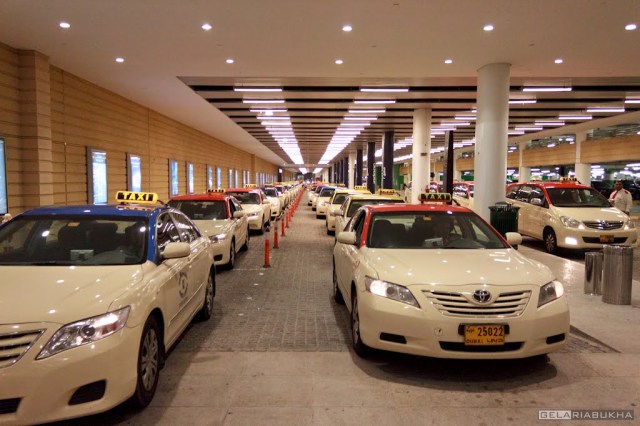Dubai cabs have some of the most interesting stories behind their steering wheels. Stories young, middle-aged and overdue for retirement. Stories on 12-hour shifts, that try to dodge peak-hour traffic and avoid fines. Stories of hope, despair, nostalgia, regret and everything in between. Lonely stories, waiting to be told.
A man from Afghanistan told me once about his haveli up in the mountains. About the hundred family members who co-exist within its walls in relative harmony, along with cows, goats, horses and hunting dogs. I could not but write about it. I remember how a writer friend of mine had been incredulous – she shared her own story of a rather stressful early morning encounter. But then, personal experiences are just the luck of the draw, ultimately.

I would get into a cab, and typically, we would reach the second or third roundabout from home, get stuck in the traffic, and then inch our way forward. Either the cabbie or I would mutter something about the traffic, reach the consensus that Dubai traffic (or the driver who unexpectedly changed lanes without warning, as the case may be) is our common enemy. A minute later, he would ask:
Aap India se hain?
Ji.
On more than one occasion, the next response has been ‘India ke log acche hote hain.’ Elsewhere India and Pakistan might be baring teeth and snarling at each other… Biting off large chunks of each other (I’m all for euphemisms) for that matter. But not here, not today.
Aur aap? Peshawar?
Then he would ask me if I worked. Yes, I do, I would say. I write and teach. And wait for the warmth level in the taxi to go up. I am an aurat with taleem, and a teacher at that! The finest kind of human being there is, purely by default.
He would then adjust the mirror to catch my eye, and we would begin our conversation.
Aap ke bachhe hain?
I would tell them about my boys. How old they are, what they do. Then he would ask me if I don’t have daughters. I would say no, and he would shake head in pity.
Betiyaan honee chahiye, Madam. Betiyaan ispecial hote hain.
I would agree with him. Then he would tell me about his daughters and sons back home – either with a smile, or with a sigh. About what they were currently doing, and how much he missed them. And so on and so forth.
When we part ways, it is usually as life-long friends.
Only once had I been told off by a cabbie for being an educated woman who earned a living. None of his three wives back home would dare to do that, nor would his daughters. Hamare yahan auratein ghar sambhalte hain, ji! Because you see, he was a marad who didn’t rely on his women for money.
I did try to convert him to feminism all the way to the airport, but he just sneered at me.
The man who took me to Business Bay Metro Station, on the other hand, was coming back from seeing his daughter off at the airport. In the three decades he had driven a cab here, he had seen a lot. All this, he pointed at the skyscrapers on Sheikh Zayed Road, only sand, madam. No building. And with his earnings, the proud father had educated his three sons and two daughters. Including the youngest, a medical doctor, who had come to Dubai for an interview. Inshahallah she get job, madam. She too good! Too good!
There was this man from – was it Timbuktu or Sudan, I can’t recall – who loved Tamil songs, and another from Lahore who spoke a few sentences in ‘Keral’. It took me a minute to understand that he was asking me, in my own language, if I had lunch.
The young man who recently drove me home from City Centre told me in a matter-of-fact tone that very often tourists asked him where they could find ‘good women’. Of course he knew where – it was hard not to. But he did not think it was right to do ‘that kind of thing’, so he usually said he did not know. Though that was just his personal point of view – he had nothing against his colleagues who did. Everybody had to live.
Then there was another young man – he was twenty-two at the time I met him, the same age as Appu was back then – who told me about his village in Peshawar where each house was built like a fortress, complete with watchtowers, for safety. They slept with machine guns within arm’s reach because you never knew when you needed to use it.
He also told me about how his village had so many fatherless children and young women who were practically outcasts. The Taliban just took whomever they wanted – and when they were no longer wanted, they were brought back to the village and left there. If they were lucky, that is.
Yes, Dubai cabs have a million stories that sometimes go off to exhausted sleep at the steering wheel. Stories that long to go back home, but can’t – for whatever reason. Instead, they roam the streets, looking for a willing ear.
***
*Image courtesy Google.

Yes Mini man, there are a lot of stories that I too heard from cab drivers in Dubai on my long trips to other emirates and who hailed from Peshawar and Kabul reminiscing of their tales back home. That also reminds me of Cabuliwalah by Tagore.
LikeLiked by 1 person
True. They do, sometimes.
LikeLike